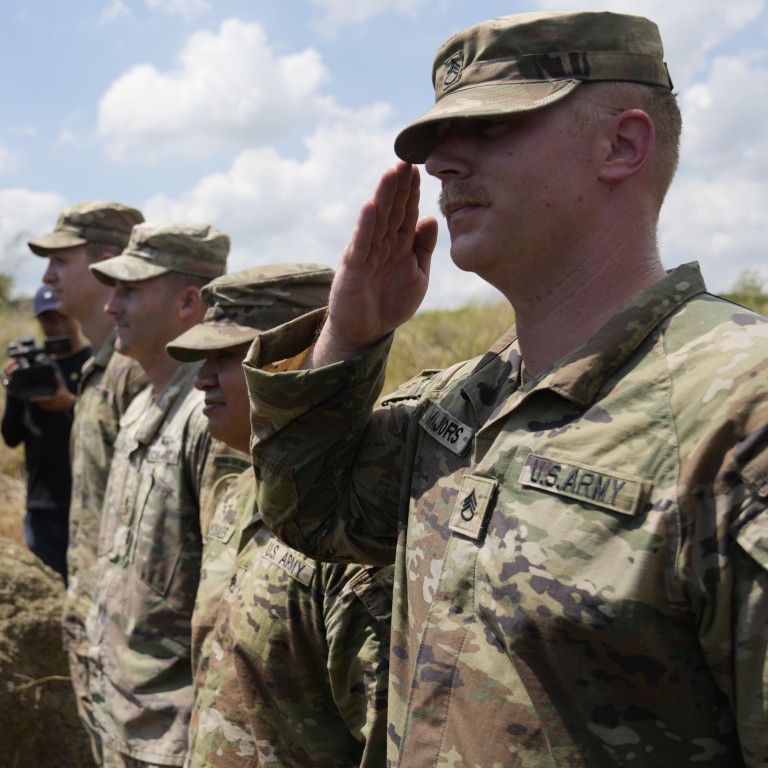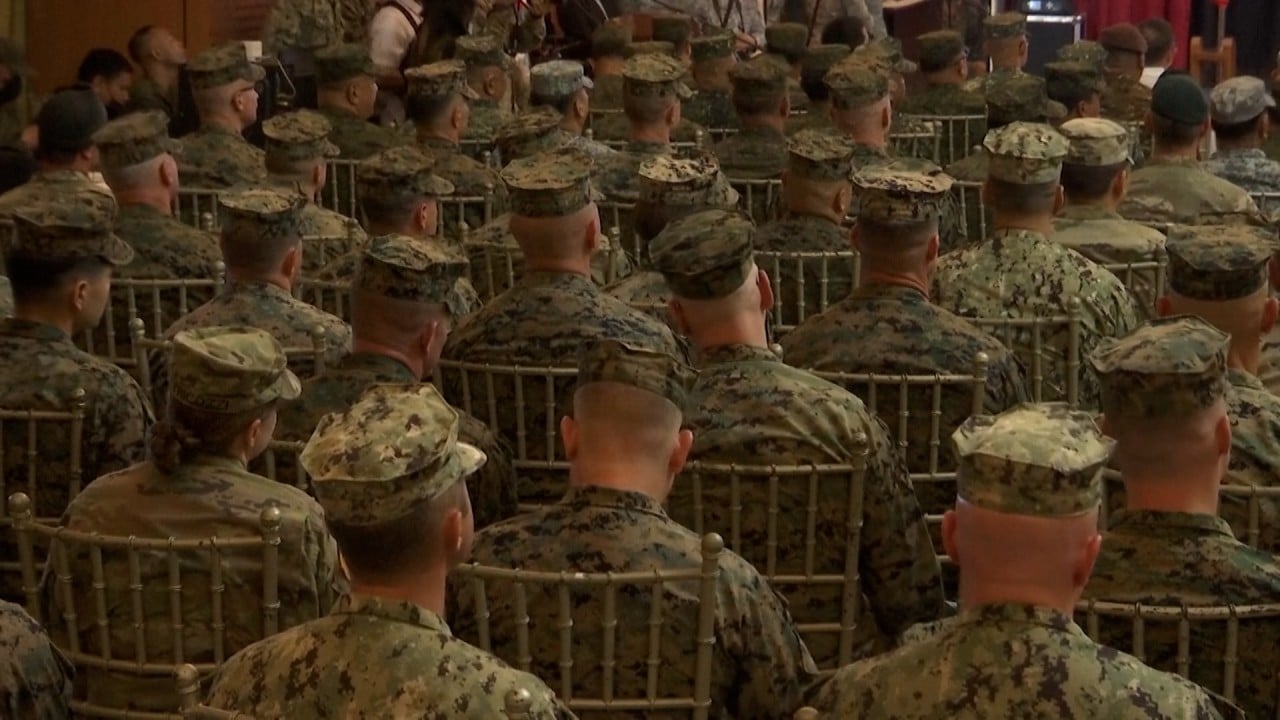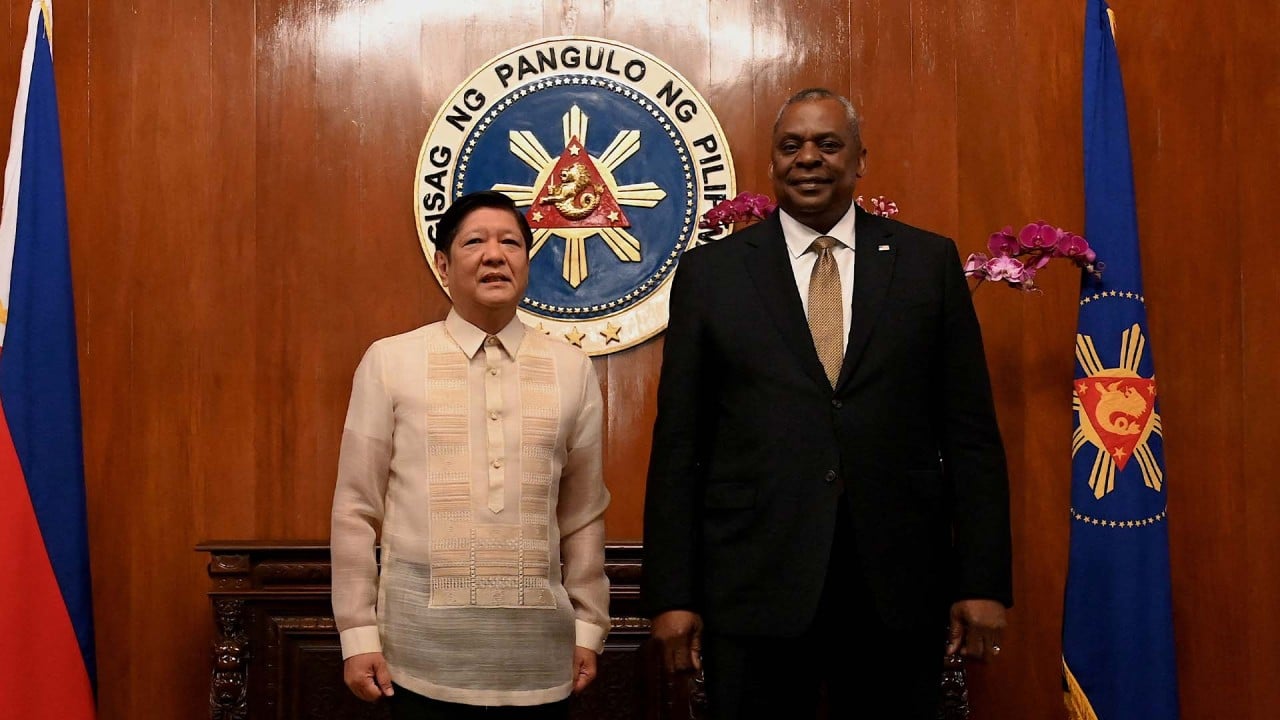
US-Philippines Balikatan joint drill kicks off soon after Beijing’s military exercises around Taiwan
- South China Sea among sites for exercises to improve maritime security, amphibious operations, live-fire training, cyberdefence and counterterrorism
- Experts say Beijing will not respond excessively to the drills, especially to the Philippines, to prevent pushing Manila further towards the US
Experts said China would not respond excessively to the drills, especially with regards to the Philippines, to prevent pushing it further away.
An estimated 17,000 military personnel will join the exercise named Balikatan, meaning “shoulder to shoulder” in Tagalog – more than double the number of personnel who took part in a drill last year, the US embassy in the Philippines said.
On Monday, Chinese foreign ministry spokesman Wang Wenbin said: “The US-Philippine military cooperation must not interfere with disputes in the South China Sea, let alone harm China’s territorial sovereignty, maritime rights and interests, and security interests.”
Wang said exchanges and cooperation between the countries concerned should not target third parties and “should be dedicated to regional peace and stability, not the other way around”.
Experts warn Philippines should stay neutral in US-China rift or be ‘crushed’
Beijing sees the self-ruled island as a breakaway part of China that needs to be united, by force if necessary. Beijing also says the Taiwan issue is a purely domestic affair.
The Philippines – which is geographically close to Taiwan and has a long-running territorial dispute in the South China Sea – recently agreed to grant Washington greater access to its military bases.
Manila announced on April 3 it would expand US access to four more military bases across the Philippines under the Enhanced Defence Cooperation Agreement (EDCA), adding to the five bases the American military already has access to.
“The presence of US military bases in the Philippines will further strengthen the security threat to the Philippines,” he said.
He said China’s solution to solve the dispute would focus on the US rather than other stakeholders in the region.
“The only way to truly contain the resolving factors of regional conflicts is for China to increase its technological and military power and for the US to realise that confrontation with China will not be worth it.”
Ni Lexiong, a professor in the political science department at Shanghai University of Political Science and Law, agreed that China would not aggressively respond to the military exercises, especially towards the Philippines.
“China has played tough to different countries but shows little effect,” Ni said. “If China took a hard stance against the Philippines, it will only push the country harder to the US side.”
Jay Batongbacal, the executive associate dean of the University of the Philippines College of Law and director of the Institute for Maritime Affairs and Law of the Sea said: “Whatever Chinese pressure is being applied is probably only having the opposite effect of making China seem more aggressive and provocative, hence, the Philippines is reacting by getting closer to its historical ally, the US.
“Since these are annual exercises that are scheduled and announced well ahead of time, with public briefings and media coverage prior to their conduct, it would be unusual for China to react with any other actions in the region,” he said.
Philippines names 4 new camps for US forces amid China fury
The South China Sea Strategic Situation Probing Initiative (SCSPI), a Beijing-based defence think tank, said in its report in March that the US military in the South China Sea had significantly increased its reliance on Philippine military air and sea bases.
“US forward bases in the Philippines will play an even more important role in future military operations in the Taiwan Strait and the South China Sea,” it said.
Ni, on the other hand, said the Southeast Asian country had clearly taken the side of the US.
If, and when, the US and China go to war in the region, “[the] Philippines’ posture has made it clear that it will side with the US”, he said.



